Search Results
Showing results 81 to 100 of 122

Stethoscope
Source Institutions
Make a copy of the first stethoscope with only a cardboard tube! René Laennec invented the first stethoscope in 1819 using an actual paper tube!

How the Rubber Meets the Road
Source Institutions
In this activity, learners explore how engineers design tire treads to increase safety and reliability.

Sugar Crystal Challenge
Source Institutions
This lesson focuses on surface area and how the shape of sugar crystals may differ as they are grown from sugars of different coarseness.

Measure the Pressure II: The "Dry" Barometer
Source Institutions
In this activity, learners use simple items to construct a device for indicating air pressure changes.
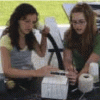
Headphone Helper
Source Institutions
In this design challenge activity, learners add headphones to a previously built instrument (see "Build a Band" activity) to make it easier to hear.
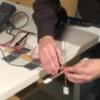
Wind Power: Creating a Wind Generator
Source Institutions
This lesson challenges groups of learners to design and construct a wind generator with the most electrical output.
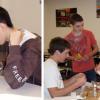
Zero-Energy Housing
In this activity, learners investigate passive solar building design with a focus solely on heating.

Oil Spill Cleanup
This hands-on experiment will provide learners with an understanding of the issues that surround environmental cleanup.
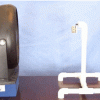
As the Rotor Turns: Wind Power and You
Source Institutions
In this engineering activity, learners will get acquainted with the basics of wind energy and power production by fabricating and testing various blade designs for table-top windmills constructed from

Resonant Rings
Source Institutions
Things that are different sizes and stiffness vibrate differently, and in this Exploratorium Science Snack, you'll see how rings of various diameters react to vibration and external forces.

Lotus Leaf Effect
Source Institutions
This is a demonstration about how nature inspires nanotechnology. It is easily adapted into a hands-on activity for an individual or groups.

Engineering Ups and Downs
Source Institutions
In this activity, learners explore the engineering and principles behind working elevators.
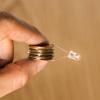
Penny Battery
Source Institutions
In this activity, learners light an LED with five cents. Learners use two different metals and some sour, salty water to create a cheap battery.

Community Wind Project
Source Institutions
In this thought-provoking activity, learners plan a hypothetical project to build and operate wind turbines in their community.

Automotive Emissions and the Greenhouse Effect
Source Institutions
In this activity about global climate change, learners will conduct an experiment and collect data to compare the amount of carbon dioxide (CO2) in four different sources of gases.
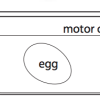
There’s Oil in My Eggs
Source Institutions
In this activity, learners investigate the impact of oil pollution on the environment and wildlife. Learners use hard-boiled eggs and feathers to understand the damage that oil spills can cause.
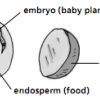
Soggy Science, Shaken Beans
Source Institutions
Learners explore soybeans, soak them in water to remove their coat, and then split them open to look inside. They also make a musical shaker out of paper cups, a cardboard tube, and soybeans.

Exploring A Hydrogel
Source Institutions
In this activity on page 10 of the PDF, learners develop an experiment to answer the following question: "How much water can the hydrogel in a baby diaper hold?" Use this activity to explore polymers,

Seeing Is Believing
Source Institutions
This activity is designed to accompany the PBS documentary about African-American chemist "Percy Julian: Forgotten Genius." Learners look through two cups with small holes in them to simulate what it'
History of Siege Weapons
Source Institutions
In this activity (page 10 of the PDF) learners will explore the historical progression of siege weapons to gain an understanding of how the addition and modification of parts can change the efficiency
